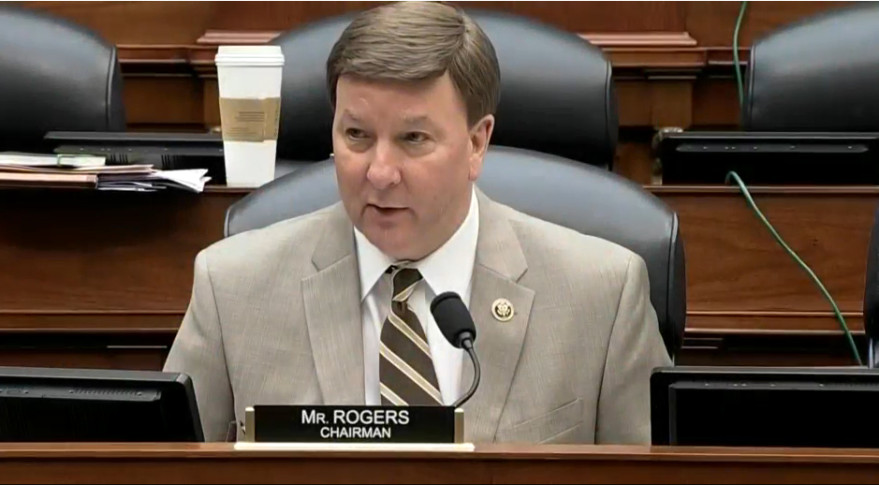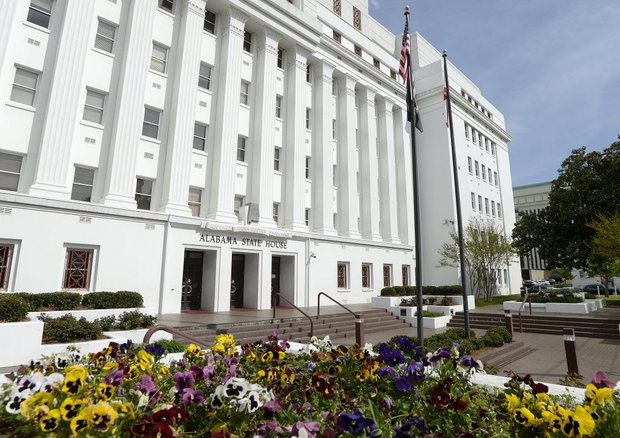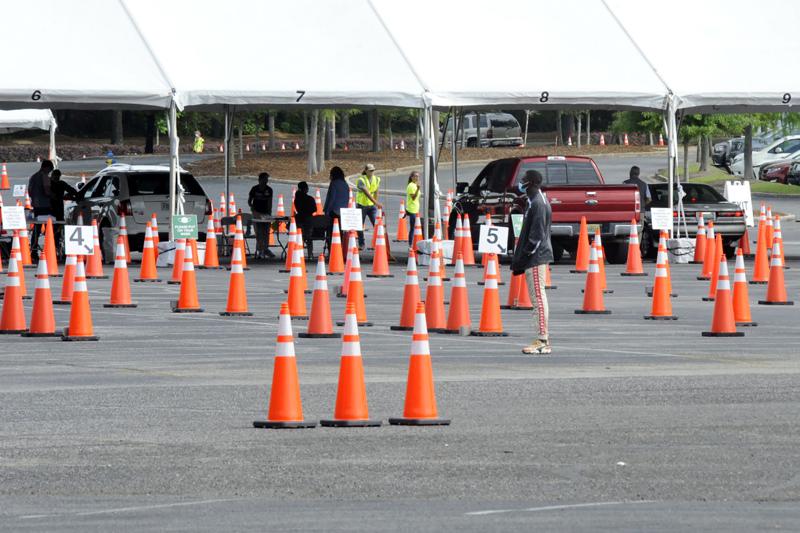Another defense merger spells bad news for Alabama and U.S.

Here in Alabama, we are uniquely attuned to any news coming out of the defense sector. With more than 210,000 Alabama jobs associated with the military in the state, any shifts can have a massive impact on our local economy. As many of us know, there has been a growing trend of consolidation among defense companies over the last decade. During her confirmation hearing on February 2, Defense Deputy Secretary Nominee Kathleen Hicks said she was “concerned” about consolidation in the defense industrial base. We are yet again facing another proposed merger that will uniquely impact Alabama, as defense contractor Lockheed Martin is currently seeking approval of its plan to purchase and merge with Aerojet Rocketdyne in a $4.4 billion deal. Competition is key to innovation in any industry, but especially in defense. A merger of Lockheed and Aerojet will give the mega-company too much market share, ultimately stifling any competition in the space, forcing us to fall behind our foreign adversaries and dealing a blow to America’s national defense. Additionally, as is often the case with any merger, there will be inevitable layoffs to follow. We saw the negative impacts of removing competition in the defense industry in 2006 when the U.S. government permitted the formation of Lockheed Martin and Boeing’s United Launch Alliance to support all medium-to-heavy USG launches. Before this, these two companies competed for space launch missions. Following that merger, costs increased 100 percent, even though launches only increased by 59 percent. These massive mergers end up costing the American taxpayer as the newly formed companies take advantage of the monopoly they have created. In 2015, then-Undersecretary of Defense for Acquisition, Technology and Logistics Frank Kendall, and now Air Force Secretary nominee warned, “The trend toward fewer and larger prime contractors has the potential to affect innovation, limit the supply base, pose entry barriers to small, medium and large businesses, and ultimately reduce competition — resulting in higher prices to be paid by the American taxpayer.” We should be learning from our mistakes instead of repeating them. In 2018, Northrop Grumman acquired Orbital ATK, an integration that left Aerojet Rocketdyne as the last independent Solid Rocket Motor provider in the country. As a direct result of this merger, Northrop won the $80 billion Ground-Based Strategic Deterrent (GBSD) program. Boeing, the program’s incumbent, was not able to compete. That means that an $80 billion taxpayer project was not challenged. By eliminating competition, Northrop was able to leverage its position into this $80 billion contract, leaving the American taxpayer to pick up the tab on any future project adjustments without any other options – a situation sure to repeat itself with this Lockheed Aerojet deal. Reduced competition, higher costs, and more instability with our nation’s defense are what awaits us if the FTC and DoD approve this merger. At the very least, our representatives, like Congressman Mike Rogers, need to take a hard look at the potential impacts of this acquisition, rather than accept now, learn later, which we have already done too many times.
Winners and Losers of the 2021 session

Every session wraps up with winners and losers. This year, there’s no doubt that the people of Alabama were the biggest loser, but there were some stand-out wins and losses too. Overall I was incredibly disappointed in this legislative session, mainly for the opportunities lost. On the other hand, there were some notable successes that need to be acknowledged. Winners #1: Senator Tim Melson & Representative Mike Ball “Pleasantly surprised!” There’s no other way to describe the feeling when the bill sponsors of the medical marijuana bill got it passed and signed by Governor Kay Ivey. After all the hours of irrational ranting and raving and mindless huffing and puffing (no pun intended) by those acting like allowing a small number of patients to have access to a limited amount of medicinal marijuana was going to lead to the fall of civilization, I was worried. The good guys won out, though. The very real, heartwarming stories of those who would benefit overcame the idea that the Pot Man has been sitting at home longingly considering getting high but just waiting for it to be available in a non-smokable, non-vape, non-flavored medicinal way. Winner #2: The anti-gaming coalition I debated putting the Porch Creek Indians on the losing list, but truly I think the bigger point is that this was a big win against big spending and a bad bill. It’s hard to pinpoint exactly who stopped the gaming bill. It was quite a group effort. If a finger has to be pointed, I’d join Senator Del Marsh in his assessment to say Speaker Mac McCutcheon can take credit for killing the bill with a shout-out to Rules Chairman Mike Jones for the assist. Of course, the Donald Trump Jr. tweet didn’t hurt either; kudos to whoever got that done. House leadership was certainly as responsible as all the other gaming interests in the state, the religious/moral opponents (API, Eagle Forum & others), and the democrats all combined in killing the bill. While the democrats thought they’d negotiate their way into a jackpot of their own with a wishlist a mile long to come on board in the end, it was the fact the speaker left the bill off the agenda so long that ended up being the favor to those who wanted to see the current proposal dead. His actual reasons and efforts (or lack of efforts) are still a mystery, with hemming and hawing about not having the votes but not bringing anything to the floor and not taking it up while a day was wasted on vaccine passports is curious. Winner #3: Wes Allen Wes Allen has always been a strong and influential member. Using his time as a probate court judge to help his perspective as a house member has served him well, but with his ban on curbside voting passing just after he announced he was running for Secretary of State, he’s looking like he’s going to be the man to beat for that open seat. Beyond the election bill Allen also passed HB 460 the Farm and Forest Products Tag Bill. AFLA describes that bill as a legislative victory. They summarized it saying, “The bill would lift limits on the purchase of F4 farm tags for larger trucks. It also would allow log trucks to purchase L tags and be exempt from the International Registration Plan. Currently, forest product haulers over 42,000 pounds must carry a commercial license plate. Existing rules put Alabama farmers and loggers at a competitive disadvantage with their counterparts in neighboring states.” Allen covering his basics with a lot of his priorities over the year showing his conservative and business friendly bona fides. Winner #4: Female athletes In what should be considered a win for common sense, feminists, and girls/women everywhere, the legislature secured in statute the current guidelines being used by the Alabama High School Athletic Association (Bylaws: Section 6, Page 48). The irony of this is media outlet after media out, and activists decried the protection as unnecessary because it would affect very few people while in the same breath saying that a ban on puberty blockers and hormone treatments (aimed to protect those this would potentially impact) would affect hundreds if not a thousand school-age kids. Which is it? This bill isn’t about hate or bigotry; it’s about fairness. Here’s a column I wrote explaining my perspective when Representative Chris Pringle first introduced the bill. Winner #5: Teachers & Students During the legislative session this year, teachers were a big winner, with multiple bills adding to their salaries, enhancing their retirement, and supporting schools in a post-pandemic world. Among the non-traditional incentives are efforts to expand broadband services. Students were also winners when Ivey vetoed SB 94, the shameful efforts to delay the literacy promotion requirement. The so-called conservatives who voted for this bill need to be asked tough questions about their vote when reelection comes up. Winner # 6: Wine and spirit drinkers Two bills passed this year that gets the government out of the way of legislating morality or even convenience for wine and alcohol drinkers. The first bill allows Alabama residents to receive wine shipments from Wine Producers. The second allows delivery services such as Shipt to deliver alcohol. Losers #1: Jokes on us, the voters; we are the biggest losers. Legislators failed us in too many ways to list and count. Look, don’t get me wrong, my feeling is if you can’t do something right, don’t do it at all. So I’d rather have no gaming/lottery bill than a bad one, but the negotiating was done without a healthy public debate on the nuances of a significant bill and hardly a public peep into what the Democrat’s last minute pot sweeteners were. There has never been a year so ripe for discussion about school choice, which is why over two dozen states sought to expand their school choice opportunities this year. Imagine my surprise that Alabama didn’t
Tuscaloosa works to create a mental health court

An Alabama city is working to establish a mental health court inside the city’s municipal court. “This is one way, with really misdemeanor offenses, that those with mental health needs, that get into our system, can get treatment and help instead of jail-time,” Tuscaloosa Mayor Walt Maddox said Friday. Police responded to 612 mental wellness calls and 198 suicide calls in 2020, the city said. Maddox recently appointed five people to a committee to provide recommendations that would help establish such a court, WBRC-TV reported. “We need people who are going through acute mental health distress to get services and not be part of the court system,” Maddox said. Maddox considers a mental health court similar to diversion programs that work with first-time offenders. “This allows the judge to sentence somebody to treatment instead of jail. We see this as no different. It provides the judge a list of options that are not as punitive, that could actually treat the mental health illness, instead of someone being sentenced to serve time or pay a large fine, but does nothing to deal with the mental health trauma that they’re going through at the time,” he said. Maddox wants the mental health committee to present recommendations on a mental health court before the end of this year. He hopes to have it operating by early 2022. Republished with the permission of the Associated Press.
Plummeting Alabama vaccination rate worrying health leaders

The pace of COVID-19 vaccinations in Alabama has fallen to a level not seen since the earliest days of the immunization campaign even though less than 30% of the state’s population is fully vaccinated. Statistics from the Alabama Department of Public Health showed Friday that the number of people getting shots in recent days was similar to the rate in January when vaccine supply was still very limited. Officials are worried that large numbers of people are simply refusing to get shots, meaning the threat of the new coronavirus will remain higher than necessary. “It’s very distressing because we have a vaccine and we have it in every corner of Alabama,” said Dr. Karen Landers, assistant state health officer. Several vaccination sites have closed because of the lack of demand, and some areas have considered turning down vaccine shipments. In Opelika, East Alabama Medical Center said “very low demand” and plenty of vaccine supply meant a community clinic would close after giving patients a second round of shots on June 14. With about 28% of its population fully immunized, Alabama’s vaccination rate is better only than that in neighboring Mississippi. With roughly 11,140 people dead of the illness caused by the new coronavirus, the state’s overall death rate from COVID-19 is the eighth worst in the nation, according to researchers at Johns Hopkins University. Over the past two weeks, the rolling average number of daily new cases in Alabama has decreased by 134, a decline of about 33%. But the state’s rate of 210 new cases per 100,000 people over the last two weeks was second-worst nationally. The state has ended its mandatory face mask rule and many businesses have returned to near normal, but it wasn’t immediately clear whether those changes led to the high rate of new cases. Republished with the permission of the Associated Press.
Jim Zeigler to announce ‘discount’ prison plan without leases

The deadline for investors to come aboard Gov. Kay Ivey’s prison lease plan is this Tuesday, June 1. State Auditor Jim Zeigler, an opponent of the plan, says “it appears investors will not sign on, and the plan will die a natural death Tuesday.” Zeigler will speak Tuesday night in Northport, Alabama and will announce his own “discount” plan. His “Operation Fresh Start” will be about 1/3 the cost of the Ivey plan and require approval of the Alabama legislature. Zeigler’s prison speech to the Alabama Republican Assembly is at 6 p.m. Tuesday at Front Porch Restaurant. 4421 Highway 43 N. Northport, Al. The public and media are invited. No ticket or RSVP is needed. He will release copies of his plan. The Alabama Republican Assembly calls itself “the Republican wing of the Republican party.” It will endorse candidates prior to the May 2022 Republican primary. The Republican party itself does not endorse candidates until after nominees are chosen by voters in the primary. Zeigler made this statement: “We believe that investors see the fatal flaws in this plan and will not touch it with a 10-foot pole. The three underwriters for the plan have withdrawn — Barclays, KeyBank and Stifel. The Ivey plan would contract with three consortiums of private businesses, two led by CoreCivic of Nashville. The contractors would pay to build three super-prisons in Bibb, Elmore and Escambia Counties of Alabama. Two of the contracts were signed Feb. 1 with the one in Bibb County pending. “The Ivey plan would force Alabama taxpayers to pay rents starting at $94 million a year and going up to $106 million. At the end of 30 years, the state would own equity in the prisons of zero. No equity. This is a bad business plan.” “The Ivey plan does not address the problems in the prison system – safety of staff and other inmates; overcrowding; mental health; suicide; recidivism; and inadequate job training. The plan merely throws over $3.6 billion of taxpayer money into rented buildings,” Zeigler concluded.


